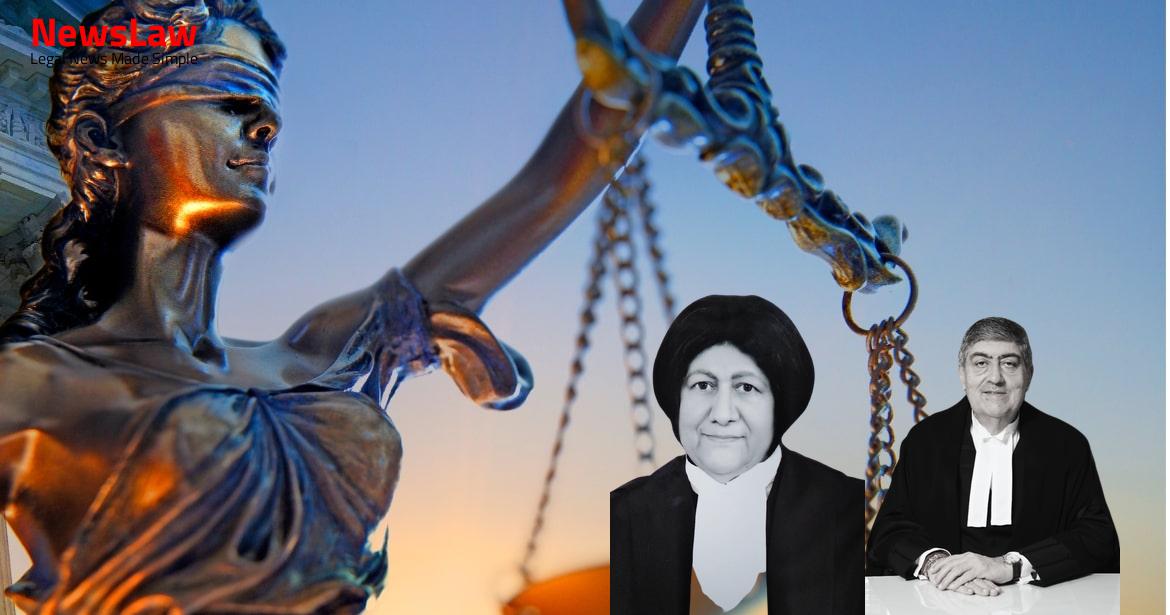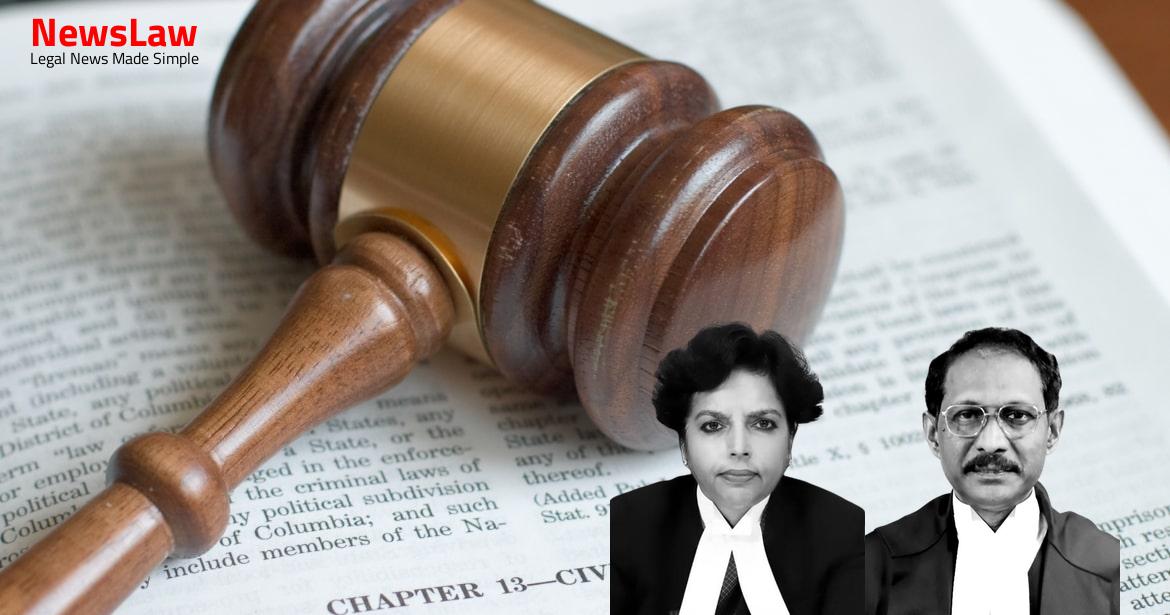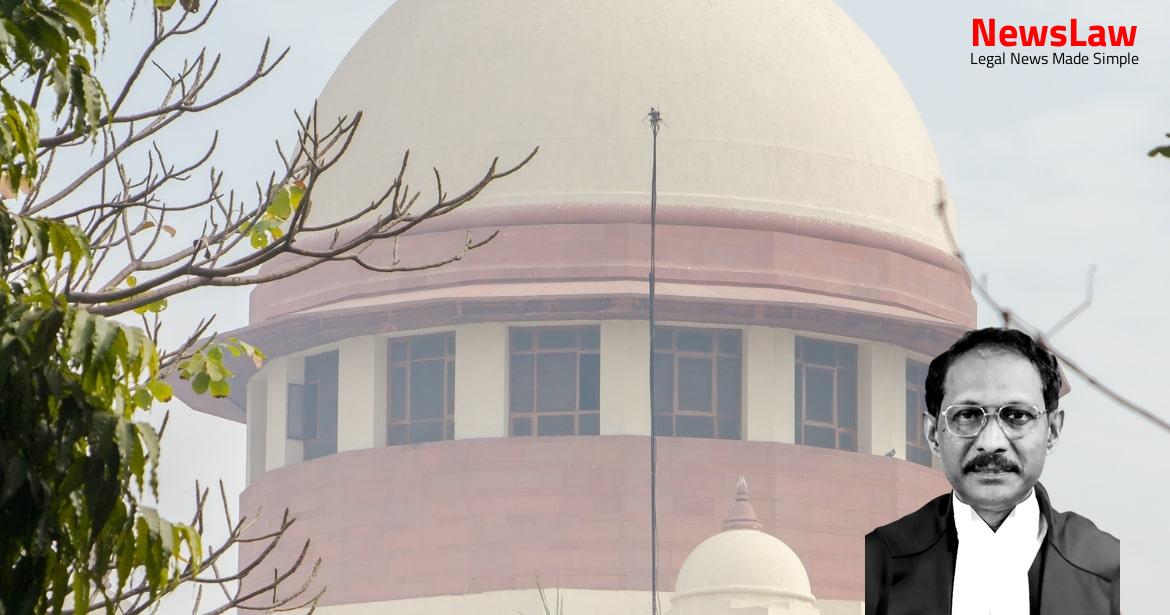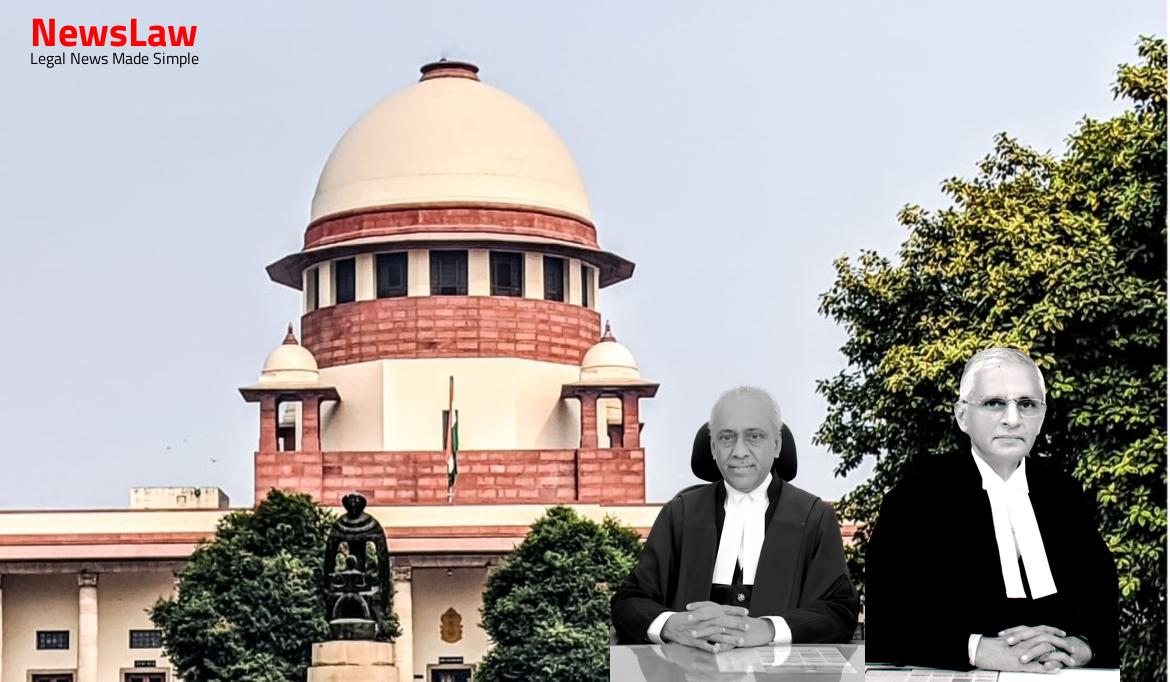Delve into the intricacies of the legal system with a detailed analysis of the Supreme Court’s landmark decision in the case of Kulwant Kaur vs. Gurdial Singh Mann. This judgment sheds light on the interpretation of laws relating to second appeals and the requirement of substantial questions of law. Stay updated on the latest developments in Indian jurisprudence with this insightful exploration.
Arguments
- Learned counsel for the appellant relied on judgments from Punjab and Haryana High Court and Madhya Pradesh High Court to support the plea.
- The contention is that the second appeal was decided without framing a question of law.
- A different legal position exists in Punjab and Haryana High Court as per a Constitution Bench Judgment of this Court.
- The Constitution Bench decision was not brought to the notice of the Bench deciding the matters in the first two judgments.
- The Constitution Bench Judgment clarifies the legal position.
- The judgment highlighted the arguments presented by the respondent.
- The respondent’s arguments were analyzed in detail by the court.
- The court did not find grounds to repeal the legislation based on the respondent’s arguments.
- As a result, the legislation continues to be in effect.
Also Read: Supreme Court Ruling on Inclusion of Allowances in Deceased’s Income Calculation
Analysis
- Section 97 of the Amendment Act and the amendment of Section 100 CPC by the 1976 Act required second appeals to mandatorily contain a substantial question of law.
- Initially, in Kulwant Kaur & Ors. vs. Gurdial Singh Mann (Dead) by Lrs. case, it was held that Section 100 of the Code would take precedence over Section 41 of the Punjab Courts Act, 1918.
- Section 41 of the Punjab Courts Act, which did not require the framing of a substantial question of law, was considered repugnant to the amended provisions of Section 100 of the Code by the Amendment Act.
- A Constitution Bench held in Pankajakshi (Dead) through L.Rs. & Ors. case that Section 97 of the Amendment Act prohibited amendments in the principal Act which were repugnant to it.
- The Constitution Bench’s decision regarding the saving clause of the Amendment Act was not brought to the notice of the Bench deciding the matters in Chand Kaur(D) through Lrs.’s case and Surat Singh (Dead)’s case, hence not holding the field.
- The Full Bench of the High Court’s decision in the case of Ganpat is overruled as it cannot be sustained.
- The judgment in Kulwant Kaur case does not accurately state the law on two propositions.
- Section 41 of the Punjab Act conflicts with the amended Section 100 CPC and is therefore deemed to have been repealed.
- The language of Section 97(1) of the Amendment Act specifies that inconsistent local laws perish, while non-conflicting ones continue to apply.
- The Constitution Bench’s discussion clarifies that State Legislature amendments to the Code of Civil Procedure apply only within the state and can be repealed if inconsistent with the principal Act.
- In Punjab, a second appeal does not require a substantial question of law as the Punjab Act would be applicable, superseding Section 100 of the Code.
- The application of Section 97(1) in the Kulwant Kaur decision was deemed incorrect.
- In case of conflict, Section 4 CPC does not save the special or local law, making it inapplicable.
- The reference to Article 254 of the Constitution was not correctly made in the Kulwant Kaur decision.
- Section 97(1) of the Amendment Act states that any amendment made before the commencement of the Act will stand repealed if it is not consistent with the provisions of the principal Act as amended by the Act.
- The Amendment Act changed Section 100 of the Code of Civil Procedure to make second appeals more restrictive, allowing them only in cases involving substantial questions of law.
- The Court debated whether Section 41 of the Punjab Courts Act was repealed due to Section 97(1) of the Amendment Act, concluding that it was as it amounted to an amendment made by a State Legislature.
- The Court also found Section 41 of the Punjab Courts Act to be repugnant to Section 97(1) of the Amendment Act, a later law made by Parliament, and therefore overridden by Article 254 of the Constitution of India.
- The law in question is the Punjab Courts Act, which was made by a Provincial Legislature under Section 80A of the Government of India Act, 1915.
- This law was continued as it was in force in British India before the Government of India Act, 1935, by Section 292 of the latter Act.
- After the Constitution of India repealed the Government of India Act, 1935, the Punjab Courts Act continued to be in force in Indian territory by Article 372(1) of the Indian Constitution.
- Article 254 of the Indian Constitution does not apply to this law, as it was not made by the Legislature of a State but was an existing law continued under Article 372 of the Constitution.
- Article 372(1) alone applies to such laws, which will continue in force until altered, repealed, or amended by a competent Legislature or authority.
- Section 97(1) of the Code of Civil Procedure (Amendment) Act, 1976 does not apply to Section 41 of the Punjab Courts Act, so the latter act will continue to be in force.
- Therefore, the reliance on a specific authority by Shri Viswanathan does not advance his argument.
Also Read: Judicial Review of Delimitation Orders: Upholding Constitutional Values
Decision
- The appeal has been dismissed after hearing the counsel
- Leave has been granted
- The appeal is dismissed as per the signed order
- Any pending applications have been disposed of
Also Read: Quashing of Complaint Case No. 85479 of 2022 in the Case of Industrial Dispute Violation
Case Title: KIRODI (SINCE DECEASED) THROUGH HIS LR Vs. RAM PARKASH
Case Number: C.A. No.-004988-004988 / 2019



